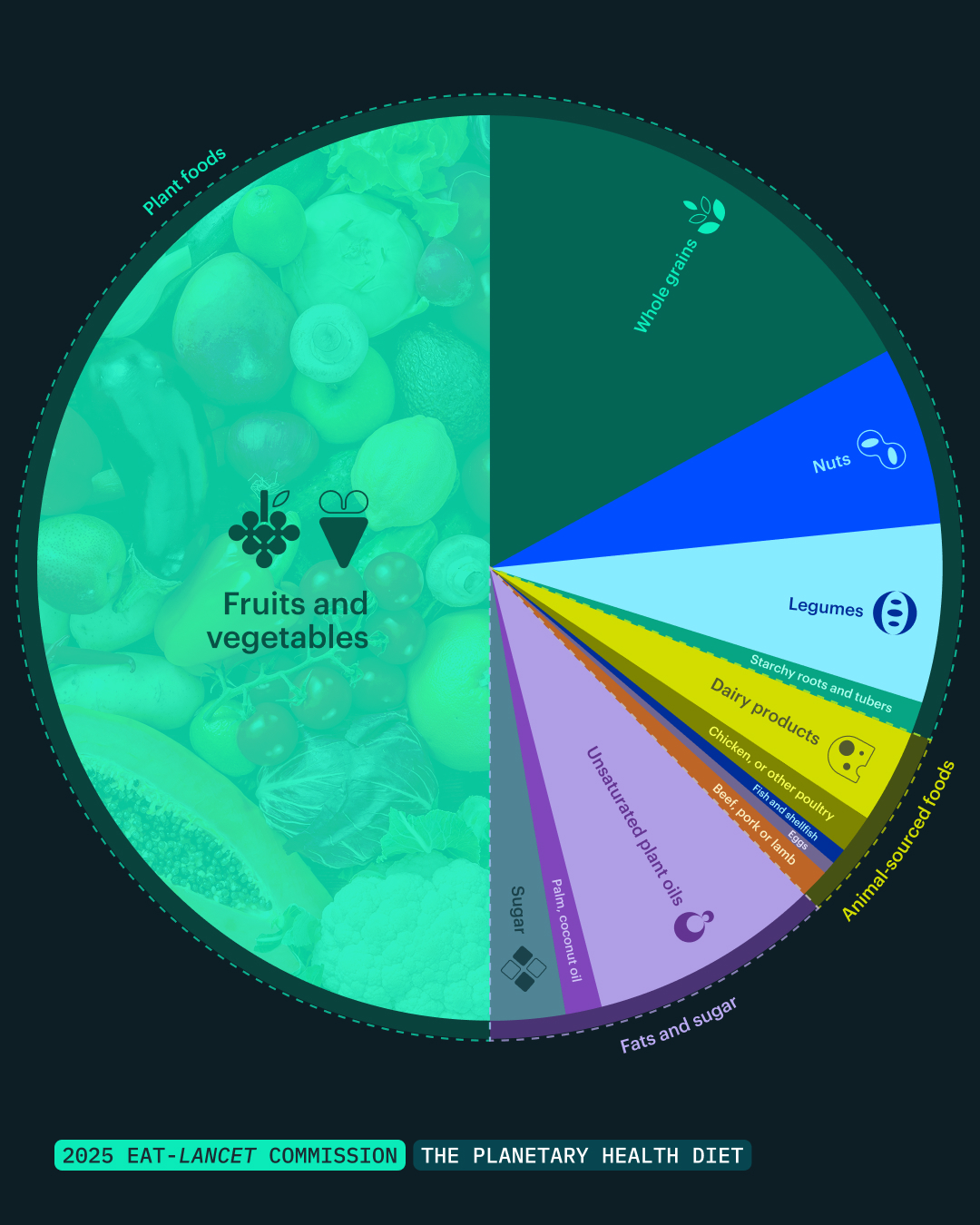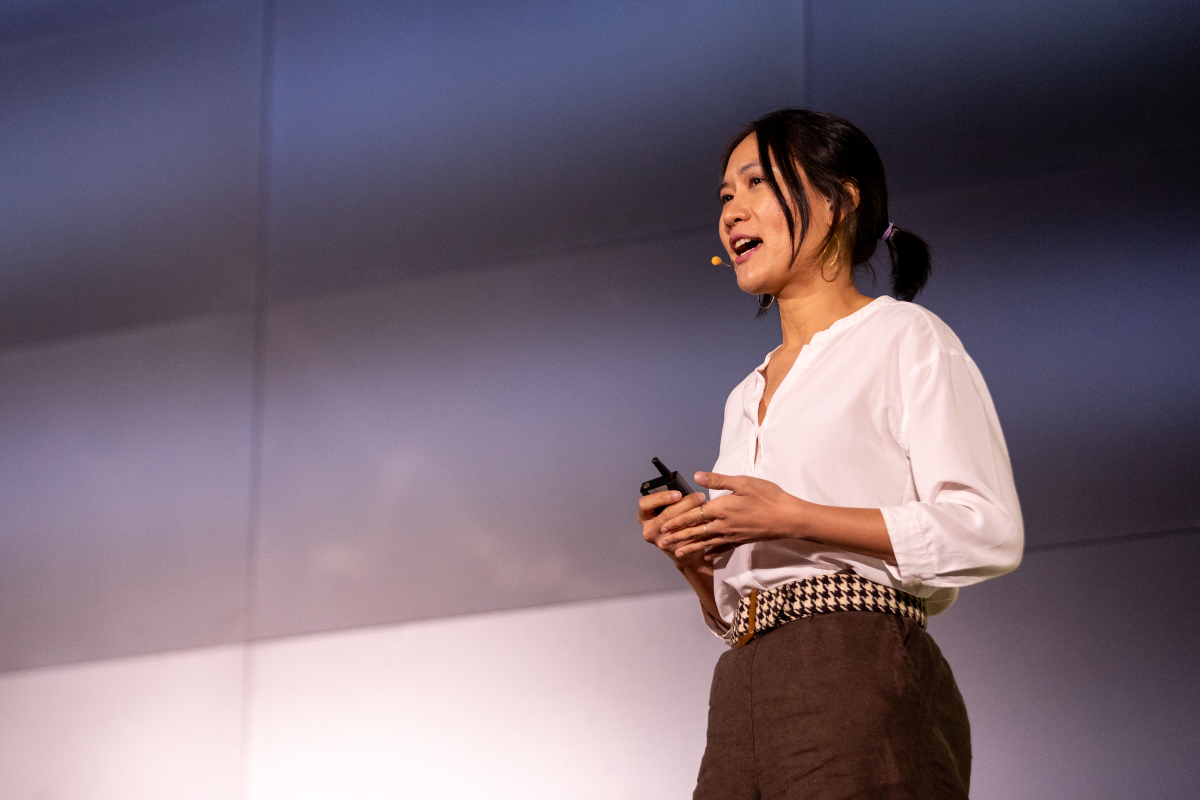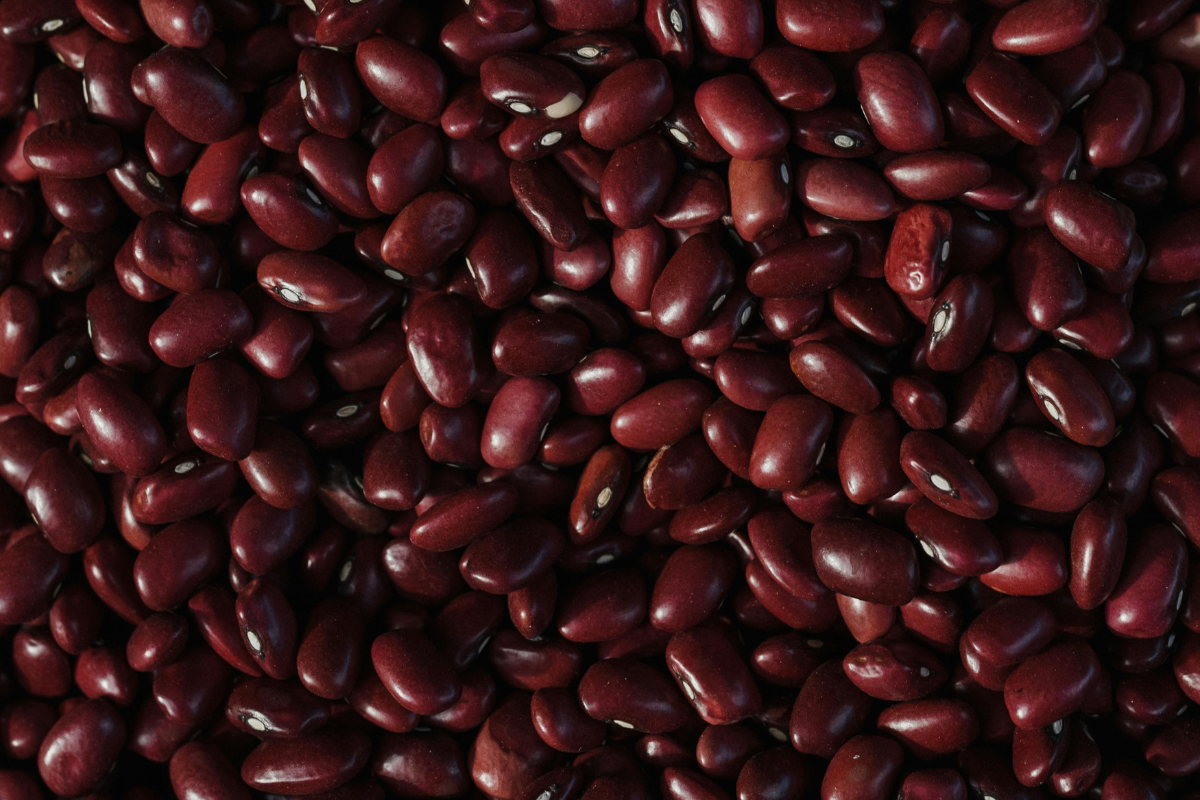3
October
2025
The global scientific consensus on a healthy and sustainable diet was released in Stockholm today.
Among its many detailed insights was unanimous agreement on the need for everyone, everywhere to eat more fruit, vegetables and nuts, with meat reduction on the menu for many developed countries.
The updated Planetary Health Diet (PHD), released by the EAT Lancet Commission, builds on the original version, which came out in 2019.
It is designed to show how we can all eat healthy food, while not destroying the planet that provides it. There is also a focus on social justice and equity in the updated release, including fair wages for agricultural workers and access to healthy food. It also notes that the wealthiest 30 percent of the world population produces more than 70 percent of food-related environmental damage.
Reacting to the new publication, Madre Brava’s co-founder and Chief Programmes Officer, Nico Muzi, said:
"The latest global scientific consensus on healthy diets that keep humankind within planetary boundaries is crystal clear: we need to eat more vegetables, fruits, legumes and nuts and, in many places, especially all the developed countries, reduce the consumption of meat, milk, cheese, animal fats, sugar and salt.”
The authors of the report estimated global adoption of the PHD could prevent 15million premature deaths a year. This estimate doesn't include the impact of the diet in reducing obesity, so it is probably an underestimate.

Besides the health implications, the report also looked at the climate potential of changing diets.
Food systems contribute around 30% of greenhouse gas emissions globally, second only to fossil fuels.
The Commission described three scenarios for 2050, business-as-usual, Eat Lancet transformation and Eat-Lancet Mitigation. Under business-as-usual, temperatures would breach the 2°C above preindustrial levels thresholds, with a 33% increase in greenhouse gas emissions, 13% in water consumption, and 4% in land use.
Under the Eat-Lancet transformation, which includes healthy diets, productivity gains, and halved food waste, scientist think we could see a 20% drop in emissions and 7% drop in land.
Madre Brava’s vision is for healthy, sustainable, affordable food for all. The transformation scenario shows food would become more affordable, with the share of income spent on food falling from 7% to 4% globally.
The mitigation scenario adds ambitious climate policies to the transformation scenario. This could see emissions fall by 34% and land use by 14%.
Nico concluded: “The plant-rich diet proposed is very flexible, allowing it to be adapted to local tastes and cultural norms, and is more affordable than current unhealthy and unsustainable diets. We now need supermarket giants, who largely determine what food is produced and how it is produced, to act and support consumers in making healthy, sustainable, affordable food choices in line with the Planetary Health Diet."
.png)


